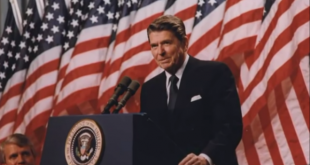The U.S. Supreme Court struck down Washington, D.C.’s 30-year handgun ban in 2008. The court held that the right to keep and bear arms is an individual right (not just a state-militia right as gun-grabbers argued) for self-defense.
The court also struck down a provision requiring rifle and shotgun owners to keep their weapons unloaded, disassembled, or locked.
The court struck down a handgun ban in Chicago in 2010.
The high court faces another Second Amendment case with huge implications. Gun owners in New York City sued the government over a law that barred residents from carrying a licensed, locked, and unloaded gun outside city limits, even if the gun owner was going to a gun range or a second home.
A lower court upheld the law, but when the Supreme Court agreed to hear the case, the city modified it to allow owners to transport weapons outside the city. New York hoped to thwart an unfavorable Supreme Court ruling, but the justices don’t consider the issue moot. The high court will hear arguments today. From the Wall Street Journal:
But gun advocates were unwilling to declare victory [despite the modified law], because they saw the case as a chance to put a broader agenda before the court. “Unable to flatly ban the possession of handguns in the home, many local governments have responded by erecting obstacles to acquiring them,” the plaintiffs said when urging the court to hear the New York case. Their petition listed other measures they consider unconstitutional, including a $25 tax on firearms sales imposed in Chicago and Seattle and a $5 fee California collects from gun purchasers to fund police.
In its brief, New York City observed that for centuries it has been “the nation’s largest urban center and a primary locus of trade and travel” that necessitates special public safety measures. As early as 1763, the city says, it began enacting gun regulations and continued to tailor them through the present, when, with 8.5 million residents, it is by far the most densely populated U.S. city…Relatively few other state or local governments impose such restrictions, however.
 CURE News and Clergy Blog News and Commentary for Christians
CURE News and Clergy Blog News and Commentary for Christians



